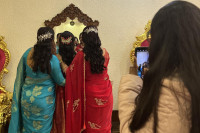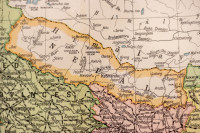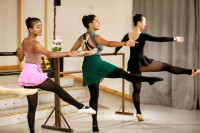Culture & Lifestyle
Family rejection, social criticism, poverty— this lesbian couple has survived them all
Pabitra Badi Nepali, 51, and Bimala BK, 50, from Tulsipur, Dang, have been together for 27 years.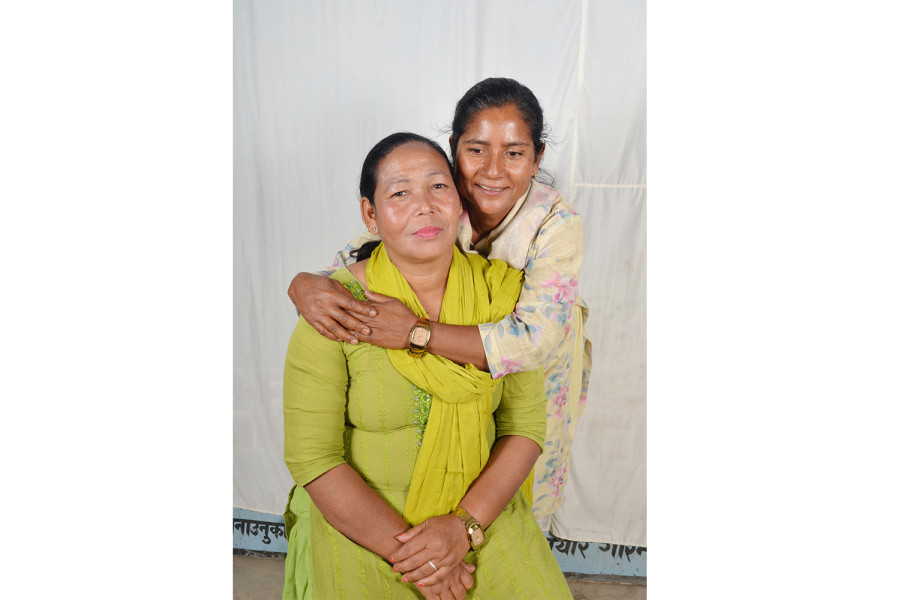
Aarati Ray
Pabitra Badi Nepali, a 51-year-old cis-gendered woman from Haattikhawa Nayabasti, Tulsipur, Dang, runs a small business selling madal (a traditional Nepali drum). She lives with her partner for 27 years, 50-year-old Bimala BK, also a cis-woman. Their life together has been challenging in a society where heterosexual relationships are the norm.
Their love story began in their childhood village, where they became friends at the age of nine. Despite living a kilometre apart, they frequently met while tending to their cattle, eventually becoming best friends. “We used to herd together,” recalls Badi.
Badi felt different from her friends as she never shared their interest in boys. Without resources like today, they had no way to understand their feelings for each other.
Initially, both of them believed their strong connection was simply friendship. It wasn’t until their families began arranging marriages for them that they realised their feelings ran deeper.
“The prospect of marrying someone else was a wake-up call. It was then that I understood I loved her and couldn’t imagine life without her,” recalls Badi. However, acknowledging their love was challenging.
When Badi was 16, her and BK’s families pushed them to split and marry others, unable to accept their feelings. Relatives blackmailed and harassed them, threatening to file a case to keep them apart. Their families even threatened police involvement and made them sign a paper to stay away from each other.
The pressure wasn’t just from family; even villagers mocked and pressured them to marry men, asking them how two women living together possibly run a household.
Besides the gender barrier, their castes added to their families’ and villagers’ determination to separate them. Badi, who was considered to be from a lower caste, faced immense discrimination couldn’t even enter BK’s house or share a cup of water with her.
“No one understood us. My partner and I faced constant surveillance and threats due to our different castes and same gender,” recalls Badi. “During those times, I felt like I was losing my mind and wanted to give up on life.”
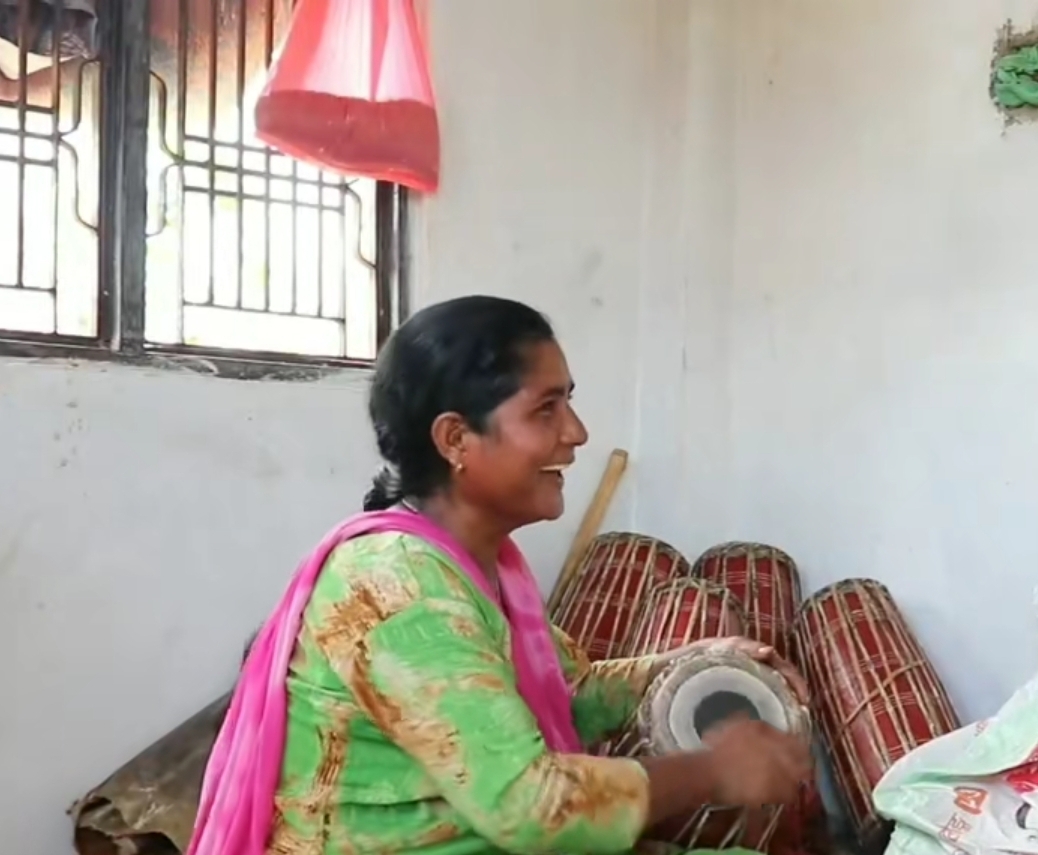
Because of the continuous torture and pressure, they planned to run away at the age of 16. However, Badi and her partner needed money and a place to live before they could run away. So Badi began working in a Kathmandu brick factory while searching for accommodation. Once everything was in place, they escaped from their village a year later.
As they arrived in the Capital, the couple lived in Harisiddhi for 11 years, away from their family. The few times they did visit their homes, they were scolded heavily and asked to return home and marry men.
Now, though, everyone in the family has come to accept them. Even those who once pressured them to split up now envy their happiness and success.
“We’ve shown our families that even two women can build a life together,” says Badi proudly.
But getting to this point wasn’t easy. Work at the brick factory wasn’t reliable. They would only hire her for six months at a time and pay her at the end of that period. Finding another job was difficult for Badi.
“There were times when we couldn’t even get basic food and clothes,” says Badi. When she worked at the factory, BK managed their home. Badi also worked in house construction projects to earn a living. Gradually, she learned enough about construction and lease contracts to become a contractor. She worked as a contractor for seven years. The couple also lived in Pokhara for four years.
After years of living by themselves, they returned to their village in Tulsipur in 2017. Their village, Haattikhawa Nayabasti, is famous for its madals. Badi and BK began making madals, something they both loved from a young age, after moving back.
“We came back to Tulsipur despite the bad memories because we were tired of running away and we refuse to let society’s narrow-mindedness stop us from reconnecting with our roots,” says BK.
Upon their return, they were ignored by villagers, kin, and relatives. They felt lonely—especially during festivals like Dashain, when everyone would be celebrating with their closed ones. They also couldn’t afford the food, meat, or new clothes for the festivities.
“There were times when we wondered if what we were doing was wrong. My biggest worry was that my love was causing Bimala pain. I felt guilty about not being able to give her the life she deserved,” says Badi.
Despite everything, Badi is happy that they persisted against the odds and difficulties.
Seven years have passed since they settled in Tulsipur. Although life has become easier, they initially faced pressure to marry again upon returning. They endured ridicule, with people suggesting they would be lonely and helpless and die alone in their old age without a man.
Badi built a small tin-roofed house for BK and herself to live in. They’ve since built a larger cement house, but Badi still prefers the small house because of all the memories they have shared there.
Badi's strongest desire now is to connect with people from the LGBTQIA+ community. Four years ago, she met a young lesbian girl, Anu, which made her realise that there are more individuals like them out there. Now, through TikTok, she stays in touch with many others in the community.
Anu introduced Badi to Mitini Nepal, and now both Badi and BK are actively seeking to reach out and connect with more people in their community.
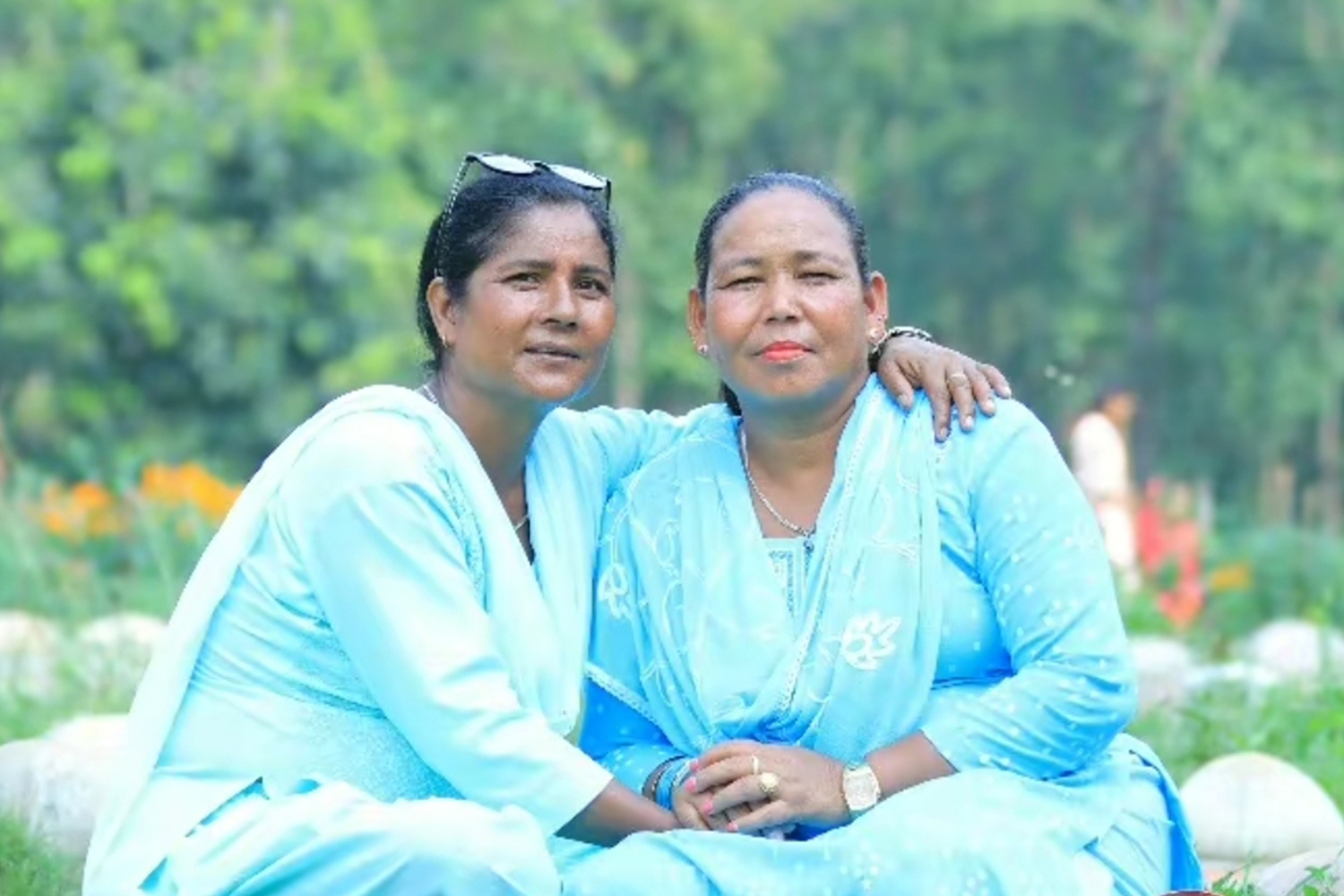
“Finding acceptance and belonging has been a lifelong struggle for us,” says Badi. So she wants to deepen her understanding of the community, their rights, and the challenges they face.
Badi, reflecting on past struggles, notes, “When we had nothing, society spit on us. Now, we’re stable, and no one dares to speak against us. If anyone questions our relationship, I simply tell them, ‘What’s the difference between a man and a woman living together and two women living together? We’re simply living our lives, just like you are.’”
When Badi sees younger individuals from the LGBTQIA+ community, she is always willing to offer support, whether it’s financial or emotional. Having experienced the challenges of finding shelter and acceptance firsthand, she empathises with their struggles.
Despite limited resources, she’s eager to help because she believes that even small gestures of encouragement or seeing someone similar to oneself can make a big difference in a world that may feel hostile.
They’re also planning to get an official marriage certificate now that same-sex marriage laws are changing.
However, Badi also holds the perspective that love alone isn’t always sufficient. She thinks that young people should not be carried away by the over-the-top romanticised portrayal of love in movies where eloping is fun, as per her, real-life love requires resilience and determination.
In 2007, Nepal’s Supreme Court recognised LGBTQ+ rights under the Yogyakarta Principles. But despite a 2015 recommendation for same-sex marriage legalisation, no laws have been made on the subject, leaving queer couples in limbo.
Though Nepal recognised its first same-sex marriage in 2023, bureaucracy and court cases hinder most couples.
“Loving someone shouldn’t be this challenging. We shouldn’t have to face such struggles. However, in the society we live in, where we’re labelled as abnormal and our very existence is questioned, we must be ready to be a fighter, warriors who persevere, endure, and work tirelessly,” says Badi.




 13.12°C Kathmandu
13.12°C Kathmandu
